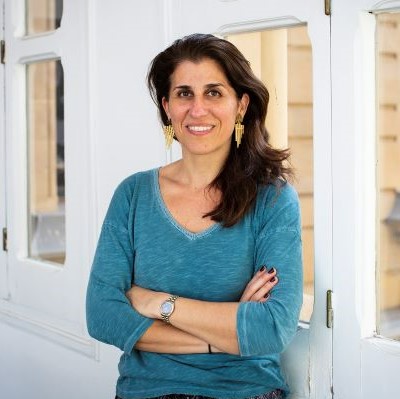Itziar de Lecuona: "The digital society demands more responsibility from all actors"

Itziar de Lecuona, lecturer at the Faculty of Medicine and Health Sciences, has been appointed director of the Observatory on Bioethics and Law of the UB (OBD), , interdisciplinary research center of the University of Barcelona that studies bioethical aspects of biomedicine and biotechnology, which celebrates its 25th anniversary. In the interview, she talks about ethical, legal and social challenges of the digital society.

Itziar de Lecuona, lecturer at the Faculty of Medicine and Health Sciences, has been appointed director of the Observatory on Bioethics and Law of the UB (OBD), , interdisciplinary research center of the University of Barcelona that studies bioethical aspects of biomedicine and biotechnology, which celebrates its 25th anniversary. In the interview, she talks about ethical, legal and social challenges of the digital society.
With what purpose have you taken part in the creation of the recent Digital Pact for the Protection of People?
We are in the middle of a change. We are in a digital society where decision taking is based on the intensive exploitation of data, including personal data and the use of emerging technologies. This digital society has a dual angle: it involves many benefits but a higher responsibility for citizens and actors who can have access to these data, and therefore, having more power on us. Like we all know, with the zip code, birth date and gender, we can reidentify a high percentage of people. We were isolated data and now we are sets of data to be combined with others. My contribution to the Pact focused on ethics and privacy on digital innovation.
Digital society faces the challenge to guarantee privacy and avoid discriminations, including those that are covert through personal data access.
How can we deal with algorithm bias?
The algorithm supports decision taking. Decisions based on artificial intelligence systems have to be reviewed and corrected by humans. Amazon programmed an algorithm to help choose professional profiles which was removed because it never chose a woman. This is an example of algorithmic discrimination and gender bias. Data that feed algorithms include human bias, because they drink from reality. The challenge lies in analysing data first, cleaning them and constantly reviewing the algorithm from the trial phase to its application.
European research agendas prioritize massive data exploitation and the use of emerging technologies such as Big Data and Artificial Intelligence. What we should avoid is that, perhaps due to ignorance or due a lack of game rules, we contribute to create data markets that end up cancelling rights.
Has the pandemic had an effect on these issues?
In my work field, research and innovation in health, this tendency to exploit massive data and emerging technologies to advance in the management of the pandemic has become clear. An example of this are the prediction systems for COVID-19, which need to combine personal data stored in clinical records with image, and other personal data stored in different databases. Also, there have been proposals for the development of apps to identify positive cases and to monitor contacts that made clear the need to work on the creation of digital infrastructures that count on the citizen participation since its design.
In addition, it has been made clear that Europe does not have neither their own nor enough technological infrastructures for data management, which is necessary at the moment. This makes us dependent on big technological companies, mainly from the United States.
If something defines the Ovserbatory on Bioethics and Law of the UB is its ability to create co-creation processes of knowledge, to work on bioethical aspects from interdisciplinary perspective and a secular perspective based on internationally recognized human rights. Our features are the work on bioethical aspects of biomedicine and biotechnology from a scientific evidence to create contributions with impact. Thus, recommendations from the OBD opinion group have had an impact on the legislator, modifying rules; in scientific societies, contributing to create action guidelines. And last but not least, what really defines us is that we contributed to create an informed social debate, and to make people take decisions in a free and informed way.
I also think we got a place in the world, and when I say world, I mean the Ibero-American scenario. We broke the dependency of the Anglo-Saxon speech, which usually sets the tone.
